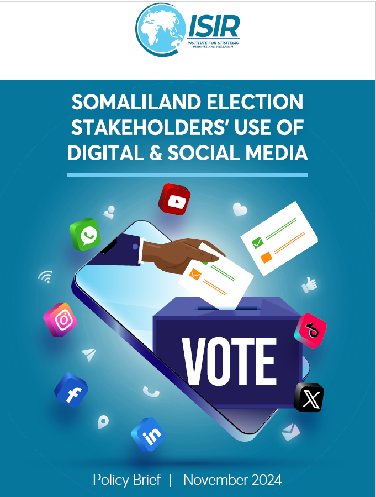SOMALILAND ELECTION STAKEHOLDERS’ USE OF DIGITAL & SOCIAL MEDIA
In the past decade, digital and social media platforms such as Facebook, X (formally known as Twitter), YouTube, and recently TikTok, have become essential tools for Somaliland’s elections, playing an increasingly significant role in the dissemination of political communication, civic engagement, and general campaigning. This policy brief aims to determine how various election stakeholders utilize digital and social media during Somaliland’s electioneering period and to explore the potential impacts of these platforms on peace and social cohesion. The study explores how political parties, media outlets, civil society organizations (CSOs), and the public use media tools to enhance the reach of their campaign messages, disseminate information, and mobilize voters. Given these platforms’ rapid growth in reach and influence, social media usage shapes electoral dynamics in Somaliland and presents unique challenges and opportunities during the electioneering period and further in the country’s democratization process.
This policy brief is based on qualitative methods, including key informant interviews and thematic analysis of social media content centered on selected keywords. The study evaluates the platforms’ dual roles in Somaliland’s electoral period, providing strategic insights for balancing the benefits and risks while maintaining electoral integrity. The key informants were drawn from various election stakeholder groups, including representatives from political parties, CSOs, journalists, and voters. A semi-structured interview guide was used during the interviews, allowing flexibility and encouraging in-depth responses. The interview questions were themed around the stakeholders’ perceived role of digital and social media in the election, their own digital and social media habits, their observations regarding the challenges arising from the use of these platforms, and the corresponding recommendations for addressing these challenges.
